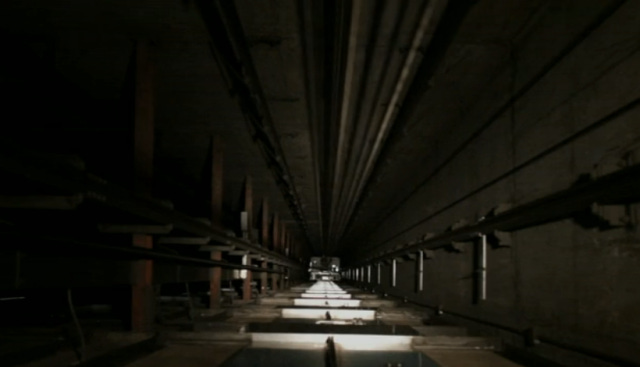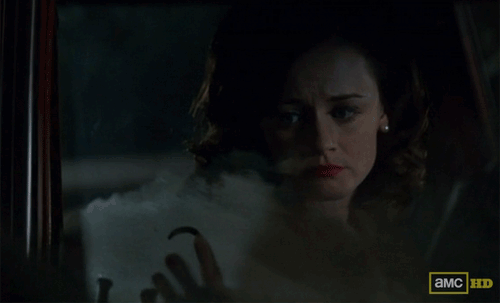Season 5: Episode 8
“Lady Lazarus”
Written by Matthew Weiner
Directed by Phil Abraham
Setting: October 1966
Dying
Is an art, like everything else.
I do it exceptionally well.
- Sylvia Plath, “Lady Lazarus” (1965)
One of Mad Men’s most absorbing qualities is that you will not only become lost in the decade captured by the show but in the influences of its writing. This episode could have had any number of titles such as “The Empty Shaft” or “Tomorrow Never Knows” in reference to the show’s most expensive needle drop.

Naming the episode “Lady Lazarus” after Sylvia Plath’s poem penned about her struggles with suicide attempts invites the viewer to gain a further understanding of what this story means. Great art echoes throughout time. Just as “Lady Lazarus” the poem inspires a great episode of TV, Mad Men will inspire future artists to communicate painful feelings that can only be captured through art.
Plath viewed death as an artform. Suicide is a tragedy and what Plath celebrates in the poem is that, as of its writing, she is still here. She is a phoenix rising from the ashes. The phoenix has died many times and yet it is still here.
Don Draper has died before and yet he is still here. Don the phoenix is haunted by the ash he emerged from.


The end of things is always an opportunity for the start of something new but Don has realized he desires no change. The ashes of other phoenixes piles upon him and darkens his glow. He can only be born again so many times and, now that he has a choice, this is a world he may not want to be born into.
His personality is built around surviving the Great Depression. It was more difficult than the present but he knew he wanted to survive because it could become better.
Now, Don wonders if this is as good as it gets.
Don, who appears to be born again at the end of each season, is in sharp contrast to Pete Campbell who will take until 1970 to rise from his ashes. He is always on the brink of becoming a new man and it is denied to him.

Pete wants nothing more than to be in a new life. Ash heaps look like phoenixes to him. He begins an affair with Beth, the wife of a fellow train commuter, because she is just as desperate for rebirth as he is. What they have in common is a shared longing to be somewhere and someone else.

The Lady Lazarus of the episode is not the housewife imprisoned in a loveless marriage or Peggy who is openly mean-spirited about the rebirth of others but privately understanding of it.
Megan is Lady Lazarus, rising from the ashes of a job she got because she is married to her boss. She burns the life she knew and begins from a new start to reach her dreams as an actress.

This is a new Megan and she will never return to the one we knew. For her, the ashes of the past blow away and she has no desire to feel them fall again just to remember the life she knew.
Everyone can chose to start over, it gets harder but there is something beautiful in it.
Peggy went from a secretary’s typewriter to becoming one of the most accomplished female copywriters in the industry, even if she doesn’t have Megan’s acting talent when it comes to selling Cool Whip.
It is important to remember that you can always start over because the more oppressive and certain feeling is that life can always be over. At any moment, you can choose the abyss. Some feel that falling into it is an inevitability.
Why start over walking into an unknown when the end is a certainty?
Never choose destruction over an unknown but beautiful beginning. This goes not just for yourself but how you treat others. You witness new beginnings each day and have to celebrate the phoenix from the ashes rather than look at them in fear and say “This is not how I knew you.”
Who know what tomorrow will bring, tomorrow never knows itself. You know what you want it to bring and can always just wait for another elevator... one that won’t plummet you through a skyscraper. It’s not that serious, Don.







